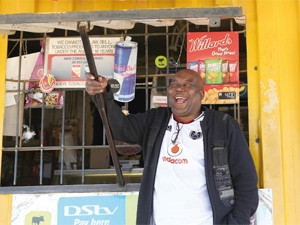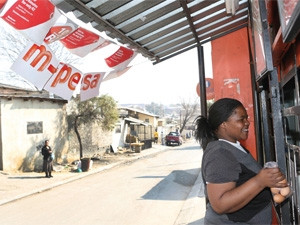
If you've ever met or heard Vodacom's mCommerce managing executive Hemmanth Singh speak, you'll know the overwhelming energy with which this man conducts himself.
Over the last few years, Vodacom has assembled a new m-pesa team in an effort to successfully re-launch the product to the South African market.
Initially, m-pesa was launched in Kenya in 2007 and is currently used by 18 million people across 13 countries. The South African market was introduced to m-pesa in 2010 and even though interest was positive, with more than one million people signing up, it didn't do as well as expected.
Money transfer service
Vodacom Group CEO Shameel Joosub has previously stated that Vodacom had high hopes for m-pesa, because it had done so well in other countries across the continent. "We wanted to change the way South Africa handles money for the better," he'd said.
Four years down the line, Singh is optimistic. "I wish I could say m-pesa didn't succeed because they didn't have me," he jokes. "But that's not the case. The current team on the project has worked well together to get mpesa up and running successfully."
'M' stands for mobile and 'pesa' is the Swahili word for money. "It means mobile money and it's our brand," says Singh. "Basically, it's a banking and money transfer service via mobile phone."
Essentially, the money you load to mpesa is not lost if you lose your phone, because you're actually loading money into your wallet at the back-end of Vodacom. It's modelled on an airtime wallet, all similar to loading pre-paid airtime.
We wanted to change the way South Africa handles money for the better.
Shameel Joosub, Vodacom
Singh believes the concept of the airtime wallet is exciting for consumers, because it's free to get, free to keep, free to load, pay-as-you-go.
Convenience
"Free to get, because you can usually get a sim card for free. Free to keep, because there are no monthly fees attached. Free to load, because just like loading airtime, you can load money to your sim card. It's all pay-as-you-go and you're able to control what's happening on the account," says Singh.
This time around, m-pesa launched with more than 8 000 agents at informal outlets and major retail partners with the intention to grow distribution and make it more available to its customers.

The second thing m-pesa needed to address was the ease of registration. Any m-pesa agent can now register a customer as long as they have their mobile phone and ID with them. "You can self-register," says Singh, "but if a customer would like to enhance the functionality and transaction limits on their account, they'll have to register at one of the FICA sites set up countrywide."
Bidvest Bank and Visa have joined forces with Vodacom, allowing m-pesa to introduce a number of new elements, including a chip and pin-protected Visa card and a voucher system to upload cash. This card gives access to approximately 27 000 ATMs and 240 000 merchant outlets in SA.
Another key innovation is the introduction of a voucher system that allows people to convert cash to m-pesa at all Vodacom shops, selected spaza shops and selected retailers. "It's like buying airtime and makes topping up the m-pesa wallet quick and convenient," says Singh. "Person-to-person transfers have been optimised."
Singh and his team worked hard to learn from their previous experience with the service, and have returned to the market with something compelling. "We're eager to see the day that South Africa is held up as yet another example of where m-pesa has changed the face of banking, unlocking the power of mobile technology to make people's lives easier," says Singh.
This article was first published in Brainstorm magazine. Click here to read the complete article at the Brainstorm website.
Share